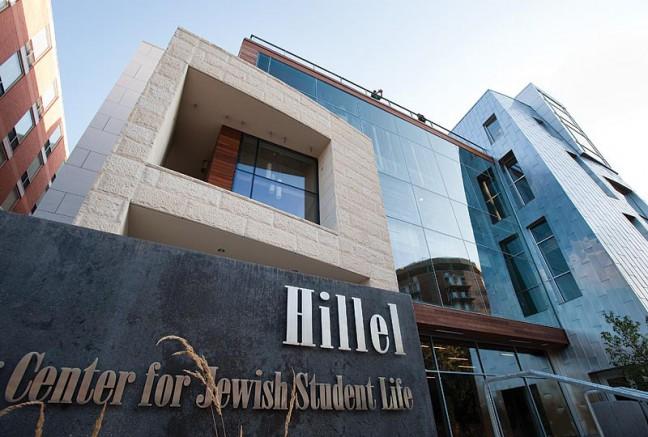The University of Wisconsin Hillel Foundation curated a conversation with Holocaust refugee and Madison resident Hilde Adler Wednesday night.
While the event was titled “A conversation with Holocaust survivor,” Adler, who is in her 90s, said she does not consider herself a survivor but rather a refugee.
“There’s a big difference,” Adler said. “A survivor to me is somebody who survived a camp, who went through terrible things there and came out alive, which not many people did. That is not my story. I’m not saying that bad things didn’t [happen] — they did — but not as bad as the people who were in the camps.”
Adler was born in 1928 and was just five years old when Hitler became the Chancellor of Germany, beginning the Nazi Party’s reign. Anti-Semitism had a 2,000-year history in Europe prior to Hitler’s dictatorship, but Adler said things were good for her when she was young.
The Nazi’s anti-Semitic regime began a new era of persecution for the German Jews. One of Adler’s first memories of their regime was Kristallnacht, or the “Night of Broken Glass,” when Nazis and German civilians demolished, destroyed and ransacked the property of Jews.
But the Nazi’s reign and Kristallnacht did not foreshadow for Adler’s father what would come next. He thought the movement would pass and decided not to leave Germany.
“It was like we feel about a president we might not like,” Adler said. “We hope that in another election he’ll go away and that things will get better.”
But life in Germany became increasingly hard for Adler’s family. Nazi policy encouraged Jews to leave the country by making life in Germany increasingly difficult for them. Soon, Jews were not allowed to work in certain professions or rent or own property.
In 1939, Adler’s family made plans to migrate to the U.S. but had to wait a year due to its refugee quota.
Most countries that Jewish refugees fled to claimed they were unable to increase their country’s immigration quotas because of the worldwide economic depression. In 1939, 83 percent of Americans were opposed to the admission of refugees.
Adler’s family escaped to England. A year later, in 1940, they arrived in the U.S. by a boat with the hope of a new life. Adler has lived in Madison with her husband for 55 years.
Adler enjoys speaking publicly and in schools about her first-hand experiences of the Holocaust because there are very few people who lived through it that are still alive. She believes these stories are important and need to be told before it is too late.
“Across America, there are many, many people who are Holocaust deniers, and I say to these kids, ‘If somebody says that to you, you tell them you met a person who experienced this and that it did happen,'” Adler said. “And even though I did not experience it at the worst level, it is still a story for them to tell.”
Adler encouraged the audience to speak to their grandparents about their lives. They, too, have wisdom, and it will be gone when they pass.
While Adler made it clear her experiences in Nazi Germany were less severe than the experiences of others — she was never in a concentration camp and did not lose any of her immediate family members, for instance — she credits her success in making it out of Germany to her parents. She said her family did their best to shield her and her brother from the trauma of the chaotic world around them and to give them a positive mindset.
Adler read a passage from the last chapter of her book, “The Way It Was: A German Jewish Childhood,” which explores her love-hate relationship with Germany.
In the passage, she wrote that she’s been back to Nuremberg, her hometown, several times. There, she has visited her house, the streets she used to call home and the cemetery where her relatives are buried.
“On the way east, always a night flight over the Atlantic, I’m always too excited to sleep. I can’t wait to get there. And after a short time, I can’t wait to leave. I announce to anyone who will listen that I am never, ever going to go back there that, that this is it, this is the last time,” Adler read from her book. “The United Airlines flight back to the U.S. always feels like home. But as soon as we are over the Atlantic, flying west, I know that I’m going to take another trip to Nuremberg. I have to see this place one last time. And I don’t know why.”


